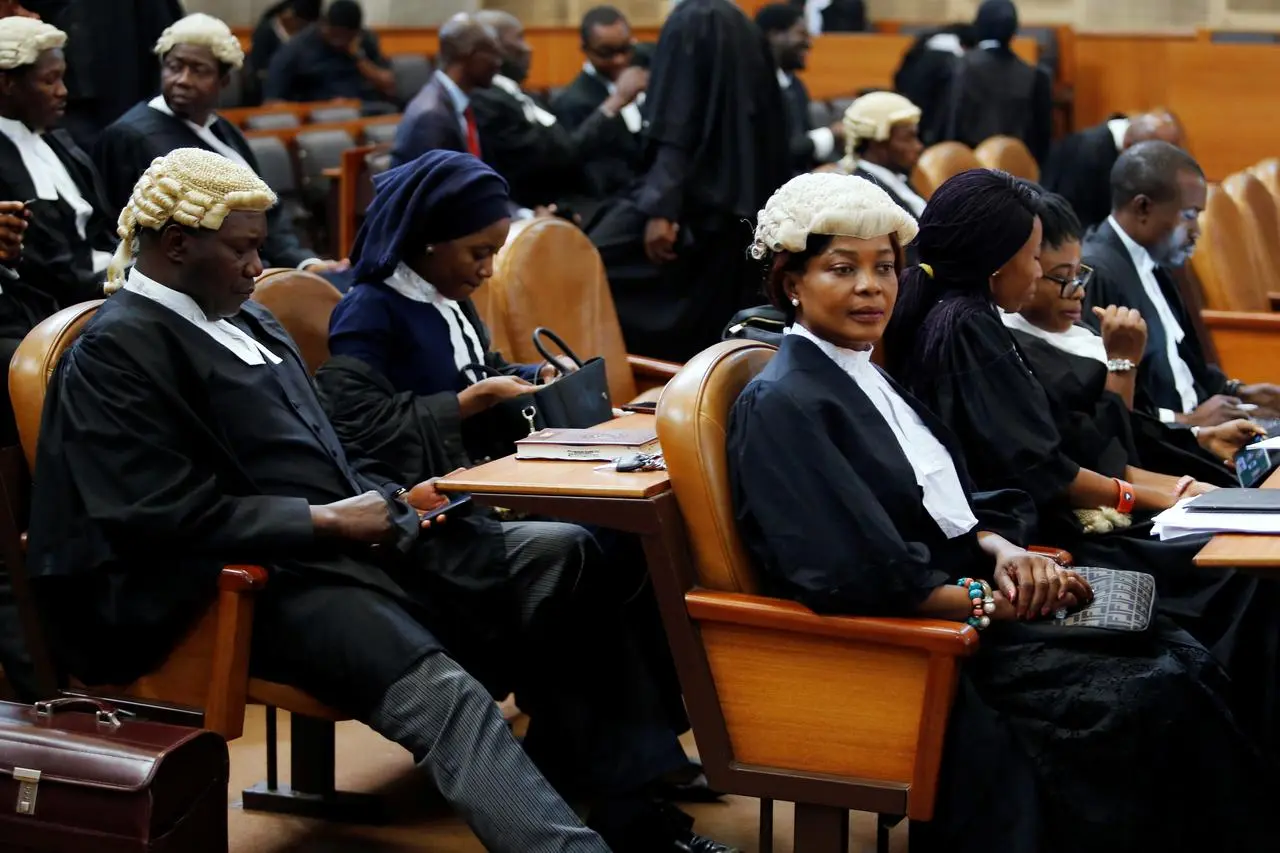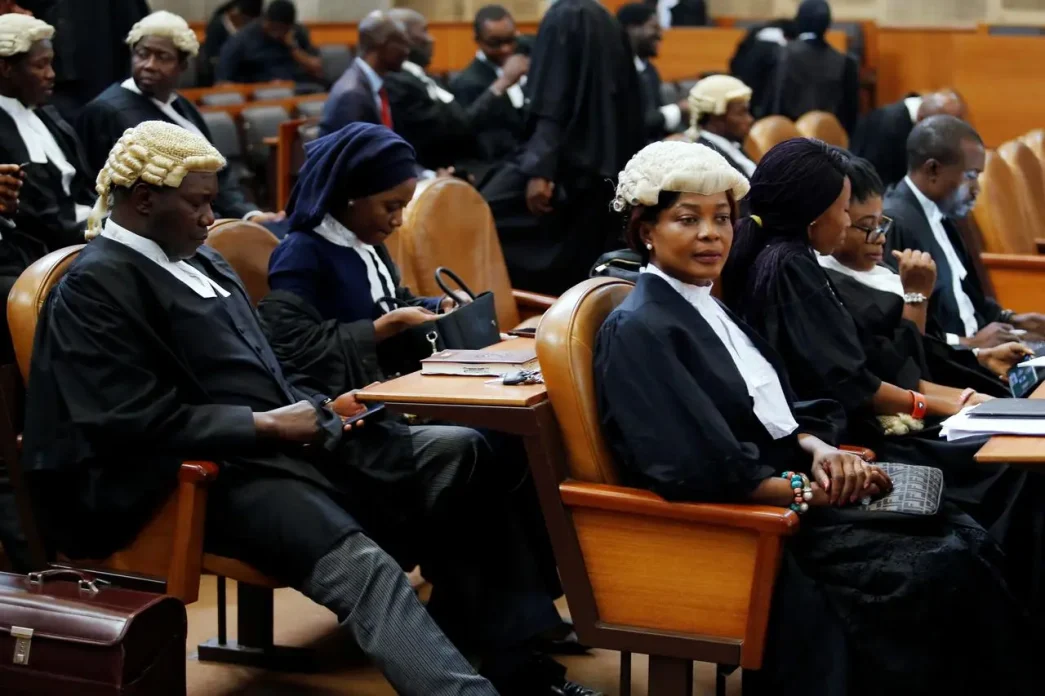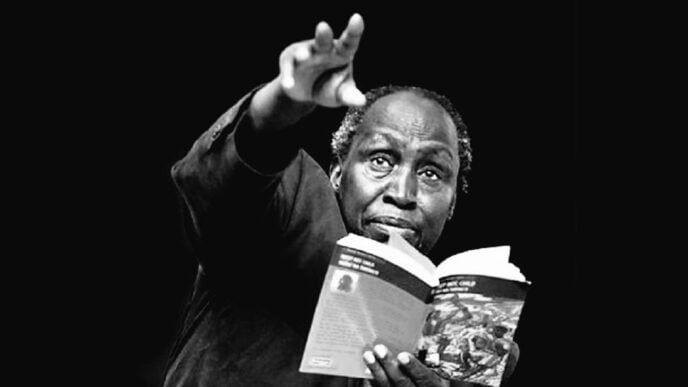BY EZINWANNE ONWUKA
In Nigeria’s legal profession, one tradition continues to puzzle me: the rule forbidding female lawyers from wearing trousers in court. This is a topic that most people shy away from talking about, perhaps because it is a longstanding rule that has, over time, assumed the status of a tradition. And as we know, tradition is usually followed dogmatically. Curiously, during my research on this topic, I discovered, to my consternation, that the only article on the matter was an editorial by TheNigeriaLawyer, published five years ago! That was all the confirmation I needed to know that I was not wrong for wanting to add my voice to the conversation.
To start with, the no-trousers rule is strictly enforced in courtrooms and at the Nigerian Law School (NLS). Furthermore, some law faculties in tertiary institutions across the country bar female students from wearing black trousers with their white shirts, insisting instead on black skirts or dresses as the official dress code. The justification usually given for this is that the students are being groomed for the strict dress code regulations that awaits them in law school.
In Nigerian courts, a female lawyer risks being excluded from proceedings, reprimanded by judges, or denied entry to the court premises for wearing trousers under her robe. While the Rules of Professional Conduct for Legal Practitioners (RPC) do not specify penalties for such dress code violations, Rule 2 of the NLS Code of Conduct for Students states that students who flout the dress code shall be escorted out of or refused entry into lecture halls. It also provides that on breaking the law a second time, the student shall be rusticated.
Advertisement
The argument is that it is all about professional etiquette. After all, law is a serious profession and so a lawyer’s appearance matters—in and outside the courtroom. As a matter of fact, Rule 6(b) of the RPC mandates lawyers to ‘…always be attired in a proper and dignified manner.’ This might be considered as the basis for the enforcement of the no-trouser rule for female lawyers. But is that really the case? This interrogation is necessary and important as the said rule—and any other in the RPC—does not explicitly legislate against trousers for women.
It is important to note that Rule 6(b) of the RPC does not define what ‘proper’ and ‘dignified’ means, and it certainly does not frankly approve of skirts and dresses while restricting trousers. So, how did we end up with a rule that treats skirts and dresses as the only acceptable option for women in the legal profession? Omawunmi’s one-time lyrics: ‘If you ask me, na who I go ask?’ readily comes to mind. Nevertheless, the usual response is that it is to maintain courtroom decorum, which is quite amusing, I must say because it assumes that skirts and dresses are, by default, more ‘professional’, more ‘proper’, and more ‘dignified’ compared to trousers. This assumption is questionable.
In the absence of any specific regulations for female lawyers regarding their attire during court appearances—except the rule requiring skirts of a certain length (typically below the knee)—it suffices to state that the no-trousers rule is more a matter of customary practice and institutional dress codes rather than statutory law. And I dare say that it is rooted in outdated gender stereotypes that define what is considered ‘appropriate’ for women and what is not. Worst still, in a profession that prides itself on justice and equity!
Advertisement
By enforcing this conventional rule, the Nigerian Council of Legal Education and the Nigerian Body of Benchers promotes an image of the ideal female lawyer as a ‘gentleman in skirt.’ A phrase that has been described as a ‘paradoxical identity’ for women in law in an opinion published in the Nigerian Tribune on 17 March 2025. The writer of the opinion suggests that female lawyers are still considered outsiders in a traditionally male profession. This is where gender stereotypes come in.
Essentially, the rule prohibiting female lawyers from wearing trousers under the traditional long black robe, assumes that professional decorum, as it stands, is gendered. This calls for concern. If you think about it carefully, it is ironic that a profession that champions justice, equity, and inclusiveness would enforce a discriminatory dress code on half of its members.
Section 42 of the Constitution of the Federal Republic of Nigeria, 1999 (as amended) guarantees freedom from discrimination based on sex, religion, or ethnic group, among others. Clearly, a rule that prevents women in law from wearing trousers, which has since assumed a standard mode of dressing in professional settings and on formal occasions, contravenes this constitutional provision. Going by section 1(1) and (3) of the 1999 constitution, the rule is null and void.
More so, in other climes, professional dress codes for female lawyers have been relaxed. For instance, in India, Sierra Leone, Sri Lanka, and Thailand, disciplinary rules have been amended to allow female lawyers to wear trousers when appearing in court. Sadly, it appears that while the world is moving forward, in Nigeria, we continue to follow the form, but not the reform. Someone might interject, ‘Ezinwanne, it’s really not that serious.’ But, oh yes! It is that serious. If the legal profession fails to uphold equity within its ranks, is it not hypocritical of legal practitioners to claim to fight for equity in society? So, you see, it is that serious.
Advertisement
To draw the curtain on this matter for now, it is my submission that the prohibition of trousers for female lawyers and lawyers-to-be in courtrooms, at the NLS, and in schools respectively is unjustifiable.
Instead of banning trousers outrightly, there should be regulations on the type, colour, length, etc.—just like skirts and men’s trousers are. Taking Rule 6(b) of the RPC as our guide, we learn only that a lawyer’s clothing should be ‘dignified’ and ‘proper.’ And today, women’s trousers, like men’s, range from casual to sloppy to formal. While some may fall short of the ‘dignified’ and ‘proper’ standard, many suit the standard perfectly whether for court appearances or for law school.
Ezinwanne may be reached at [email protected]
Advertisement
Views expressed by contributors are strictly personal and not of TheCable.












